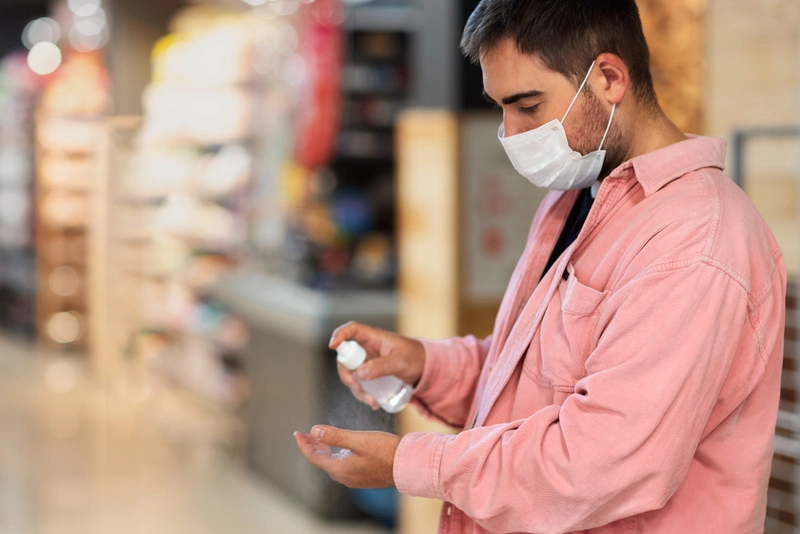- Published on: Jul 22, 2022
- 3 minute read
- By: Secondmedic Expert
Unveiling The Power Of Cetirizine: Uses, Side Effects, And Precautions For Effective Allergy Relief
Are you tired of battling the persistent discomfort caused by allergies? Have you considered Cetirizine as your go-to solution for allergy relief? In this comprehensive guide, we'll explore the multifaceted aspects of Cetirizine, shedding light on its uses, potential side effects, and essential precautions. Join us on this journey to discover the key to non-drowsy allergy treatment and the best practices for incorporating this antihistamine medication into your wellness routine.
Understanding Cetirizine
Cetirizine, a widely recognized antihistamine, stands as a stalwart defender against allergy symptoms. Derived from the second-generation antihistamine family, it has gained popularity for its effectiveness in providing relief from various allergic reactions. Let's delve into the diverse uses of Cetirizine and how it can be your ally in combating allergies.
Cetirizine Uses
1 . Allergy Relief with Cetirizine
-
Cetirizine serves as a potent ally in alleviating allergy symptoms, including sneezing, itching, watery eyes, and runny nose.
-
Whether triggered by seasonal changes, pet dander, or environmental factors, Cetirizine can provide much-needed relief.
2 . Non-Drowsy Allergy Treatment
-
Cetirizine's non-drowsy formula sets it apart from other antihistamines, making it suitable for individuals leading active lifestyles.
-
The ability to maintain alertness while effectively managing allergy symptoms contributes to its widespread popularity.
3 . Best Allergy Medicine
-
Cetirizine is often hailed as one of the best allergy medicines available over the counter.
-
Its fast-acting nature and long-lasting effects contribute to its reputation as a top choice for managing various allergy symptoms.
Unlocking the Potential: Cetirizine Uses for Comprehensive Allergy Relief
Cetirizine Side Effects
While Cetirizine is generally well-tolerated, it's crucial to be aware of potential side effects that may arise, ensuring a safe and informed approach to its usage.
1 . Dry Mouth and Throat
-
Cetirizine may cause temporary dryness in the mouth and throat.
-
Staying well-hydrated can help alleviate this common side effect.
-
Consider using sugar-free lozenges or gum to alleviate dryness and promote saliva production.
2 . Drowsiness
-
Although Cetirizine is designed to be non-drowsy, individual responses may vary.
-
It's advisable to avoid activities requiring full alertness until the body adjusts to the medication.
-
Opt for evening doses to minimize the impact of any potential drowsiness during the day.
3 . Headache
-
A mild headache can occur in some individuals as a side effect of Cetirizine.
-
Adequate rest and hydration may help mitigate this symptom.
-
If headaches persist or become severe, consult with a healthcare professional for personalized advice.
Embracing Clarity: Navigating Cetirizine Side Effects for Optimal Allergy Management
Cetirizine Precautions
To maximize the benefits of Cetirizine while minimizing potential risks, certain precautions should be observed. Here's a closer look at the precautions to keep in mind when incorporating this antihistamine into your wellness routine.
1 . Consultation with an Online Doctor
-
Before starting Cetirizine, consider an online doctor consultation to ensure it's a suitable option for your specific health condition.
-
Online consultations provide convenient access to professional advice from the comfort of your home.
-
Be prepared to provide a comprehensive medical history, including existing conditions and current medications, during the online consultation.
2 . Adherence to Recommended Dosage
-
Strictly adhere to the recommended dosage provided by your healthcare provider or as indicated on the packaging.
-
Avoid self-adjusting the dosage without consulting a healthcare professional.
-
Keep a medication log to track your doses and note any changes in symptoms or side effects for discussion during follow-up consultations.
3 . Identification of Potential Drug Interactions
-
Inform your healthcare provider about any other medications you are taking to identify potential drug interactions.
-
This proactive approach helps prevent adverse effects and ensures the safe use of Cetirizine.
-
Familiarize yourself with common drug interactions and discuss any concerns with your healthcare provider.
Safeguarding Wellness: Cetirizine Precautions for a Secure Allergy Treatment
Additional Considerations for Optimal Cetirizine Use
In addition to the primary uses, side effects, and precautions associated with Cetirizine, there are some practical considerations and tips to enhance your experience with this antihistamine medication.
1 . Meal Timing and Cetirizine Administration
-
Cetirizine can be taken with or without food, but for some individuals, taking it with a meal may help reduce the risk of stomach upset.
-
Consistency in the timing of administration can contribute to the medication's effectiveness.
2 . Storage and Shelf Life
-
Store Cetirizine at room temperature, away from moisture and sunlight.
-
Check the expiration date on the packaging and discard any expired medication.
-
Consider keeping a spare supply for travel or unexpected situations.
3 . Monitoring Allergy Triggers
-
While Cetirizine provides relief, identifying and minimizing exposure to specific allergy triggers is equally crucial.
-
Keep a diary to track environmental factors and potential allergens, allowing you to make informed lifestyle adjustments.
conclusion
Cetirizine emerges as a formidable ally in the battle against allergies, offering a range of benefits from non-drowsy relief to fast-acting results. By understanding its uses, potential side effects, and necessary precautions, you empower yourself to make informed decisions for your health. For personalized advice and a seamless online doctor consultation, consider exploring the possibilities that Cetirizine holds in providing optimal allergy relief.
Read FAQs
A. Before using cetirizine, inform your healthcare provider about existing medical conditions, especially kidney problems. If pregnant or breastfeeding, consult a doctor. Be cautious about potential interactions with other medications.
A. Cetirizine is generally well-tolerated, with mild side effects such as drowsiness, dry mouth, and temporary headaches. Exercise caution with activities requiring focus, stay hydrated, and seek medical attention if side effects persist.
A. Avoid driving or operating machinery if cetirizine causes drowsiness. Limit alcohol intake and steer clear of grapefruit juice, which may interact with cetirizine. Follow healthcare provider guidance for a safe experience.










